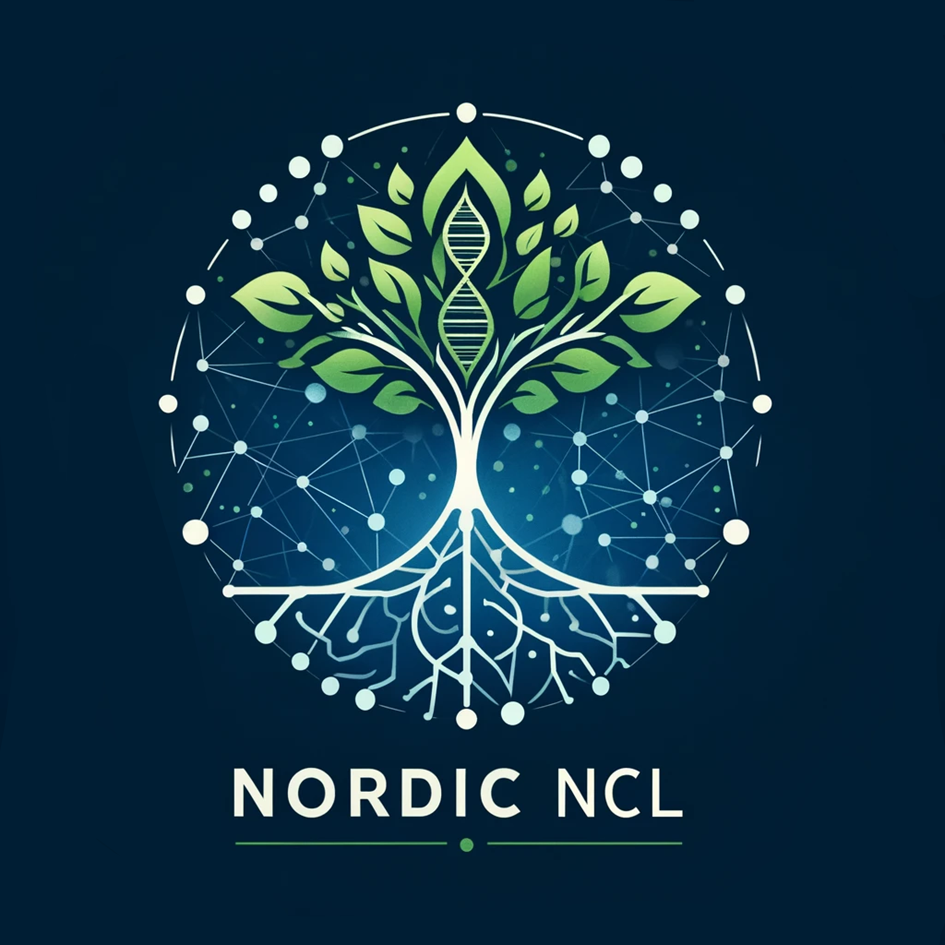
NCL (neuronal ceroid lipofuscinosis) refers to a group of rare, inherited diseases that gradually break down the nervous system. Symptoms vary between types, but typically include a combination of childhood-onset dementia, vision loss, and epilepsy. In Denmark, approximately 25 children currently live with an NCL diagnosis.
Children with NCL are born healthy, but over time — depending on the specific genetic defect, typically between ages 1 and 8 — they begin to lose previously acquired abilities. Eventually, they are left without most of their functions and pass away at a young age. There are 14 known types of NCL, with CLN3 being the most common in the Nordic countries. The average life expectancy for CLN3 is around 25 years.
Globally, there are only a few conferences dedicated to NCL, and no existing Nordic or European forum for either families or the many professionals who support them. The goal of Nordic NCL is to establish, maintain, and grow a Nordic network that brings together patient associations and professionals working with NCL — with the aim to:
Foster close Nordic collaboration between families and professionals
Raise awareness of potential therapies and approaches — educational, therapeutic, medical, and more
Increase understanding of childhood dementia
Share knowledge about the disease
Improve quality of life for affected children and their families
Focus on the best strategies for each phase of the disease
Learn from international experiences and research
Nordic NCL is hosted by NCL Danmark, the Danish parent association for families affected by NCL, in collaboration with the Swedish NCL Association.
The communities surrounding children affected by NCL are often small, and knowledge tends to stay local. This Nordic conference was created to bring people together — both patient associations and professionals from across the region — who work with children living with NCL. Participants include neurologists, psychologists, educators, therapists, researchers, and others who share a common goal: to learn from one another and explore new approaches, treatments, and ideas — also from beyond the Nordic borders.
For families living with this disease, a gathering like this can make a real difference. It helps raise awareness, but more importantly, it spreads knowledge about how to manage the disease — what’s possible, what’s emerging, and what has worked for others. Because NCL is so rare, many professionals may only meet one or two children with the diagnosis in their entire career. That makes it even more important to share what we know.
When families are better informed about what lies ahead, they can prepare — emotionally and practically — for the next step in the journey. Knowing what has helped others, and when, can be the key to giving a child the right support at the right time. Without that awareness, help often comes too late — after the disease has already taken something precious away.
That’s why building a network matters. Knowing who and what is out there can be a lifeline. For professionals, the conference is a space for sparring, inspiration, and connection — not just within their own field, but across disciplines. International guest speakers are invited to share insights from around the world, and the hope is to build a lasting Nordic forum that meets annually. A place to share research, highlight promising therapies, and strengthen collaboration — all for the benefit of the children and their families.
The Nordic NCL Conference was initiated in 2021, following a collaboration between doctors and patient associations in Denmark, Norway, and Sweden. After 1.5 years of quarterly meetings, the first conference — involving a small group of doctors and parents — was successfully launched in November 2022. It clearly demonstrated both the need for and interest in a dedicated forum for families and professionals affected by Neuronal Ceroid Lipofuscinosis (NCL).
The purpose of the conference is to build a strong, collaborative network across the Nordic region — connecting families living with NCL and the many professionals who support them. By sharing knowledge, experiences, and resources across borders, the conference aims to meet the challenges of this rare and devastating disease.
Because NCL is so rare, with only a handful of cases in each country, exchanging insights is essential. These gatherings offer a vital space for parents and professionals — including neurologists, psychologists, educators, therapists, and others — to come together and discuss the latest research, therapies, and strategies for managing the disease. This collaborative approach helps ensure that children receive timely, coordinated support that can improve their quality of life and potentially slow the progression of symptoms.
The conference also raises awareness of childhood dementia and the unique needs of children with NCL — not just within the medical community, but in society at large. By bringing together experts and stakeholders from different fields, the event promotes interdisciplinary learning and cooperation, which is key to advancing care and support.
Looking ahead, the vision is to establish a recurring Nordic forum — a place where cutting-edge research and promising treatment approaches can be shared, and where families and professionals can strengthen the support network around affected children. Early, informed intervention makes a real difference, and this initiative is about giving families the tools, knowledge, and hope they need to navigate the journey ahead.
In 2023, the conference was expanded to include non-medical professionals from the Nordic countries who work with affected children. Participants from Finland were also added, bringing the total to 54 attendees — evenly split between parents and professionals, including doctors, brain researchers, psychologists, educators, and others.
In 2024, the conference grew further, welcoming 82 participants. Professionals came from the USA, the Netherlands, Germany, the UK, and across the Nordic region, while all parents represented Nordic countries only. The initiative continues to attract growing interest from across Europe, and we expect the conference to keep evolving in the years to come.